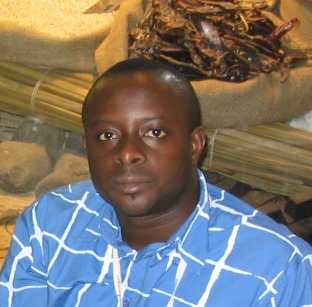Journalist and media career development specialist, Lekan Otufodunrin recalls the media exploits of the late founding executive director of Journalists Against AIDS, Omololu Falobi who died 15 years ago.
How time flies indeed. 15 years on October 5 when the founding Executive Director of Journalists Against (JAAIDS) Omololu Falobi, journalist per excellence and media visionary ( if I may add that) literally flew away at 35.
I still remember the after media training session discussion outside the old JAAIDS office at Caterpillar Bus-Stop, Ogba we had with some participants that day when he told me he would later in the day attend a programme in the Mainland.
I didn’t realise that would be the last time I would see Omololu until I got the distress call in the night that he could not be reached on the phone and was to be told of one of the saddest news I have heard in my lifetime the next morning.
It wasn’t until I saw his body at the Otta General Hospital that the grim reality of Omololu’s sudden demise hit me. I wish I could wake him up and let him know he was too young to leave his family and numerous projects and ideas in the works.
Alas, it was too late. The evil ones had done their worst by shooting my one and only Omololu whose accomplishments for his age was amazing.
Fifteen years after his death, his memories remain indelible. The impact of the pioneering work he did through JAAIDS in terms of media advocacy is still felt locally and globally.
Omololu was an excellent journalist while at The Punch where we worked together and a role model for many younger and senior colleagues.
He caught the vision of the digital age far back as 1999 when he bought a personal laptop for numerous online publishing when staff access to computers was still very limited and not many knew how to use it.
He was one of the earliest users of the internet. He shared resources and opportunities about making the best of media skills. He organized series of training sessions and awards for journalists.
He was a stickler for best practices and corporate governance in running NGOs which is why his organization still exist 15 years after his death with an office complex of its own.
I remember a top official of the Ford Foundation noting that Omololu was an authentic leader. In his words ” Omololu ran a transparent organization and will usually refer enquiries on projects to staff assigned and not be the all-in-all”
Marcel Van, of the World AIDS campaign captured the real stuff Omololu was made of in one of the numerous tributes in his honour.
READ ALSO Falobi: Journalist, advocate extraordinaire!
“Omololu turned out to be one of those rare leaders in civil society that could translate his passion, intelligence and personality into a leadership role of an amazing mixture of vision, respect, energy, persuasion, humbleness, variation and authenticity.
Omololu inspired me in many ways to realise my potentials and some of the things I do today for which I am commended for I learnt from watching him run his organization and those frank discussions he never ceased to have when he thinks “Uncle Lekan” can do better.
His life and accomplishment confirm that it’s not how really long we live that matters, but how well.
READ ALSO:
OMOLOLU FALOBI: 15 years after, still sorely missed
Omololu will continue to live in our minds. His short and impactful life should inspire especially journalists to explore all frontiers to which journalism skills can be used.
We must not be left behind by the exponential digital changes in our work which Omololu effectively mastered and utilized.
We must dream and dare beyond the confines of our newsrooms. We must be the global professionals we can be like Omololu.
We miss Omololu, but we are consoled that like all mortals, Good men according to a Danish proverb will surely die, but death cannot kill their names.

